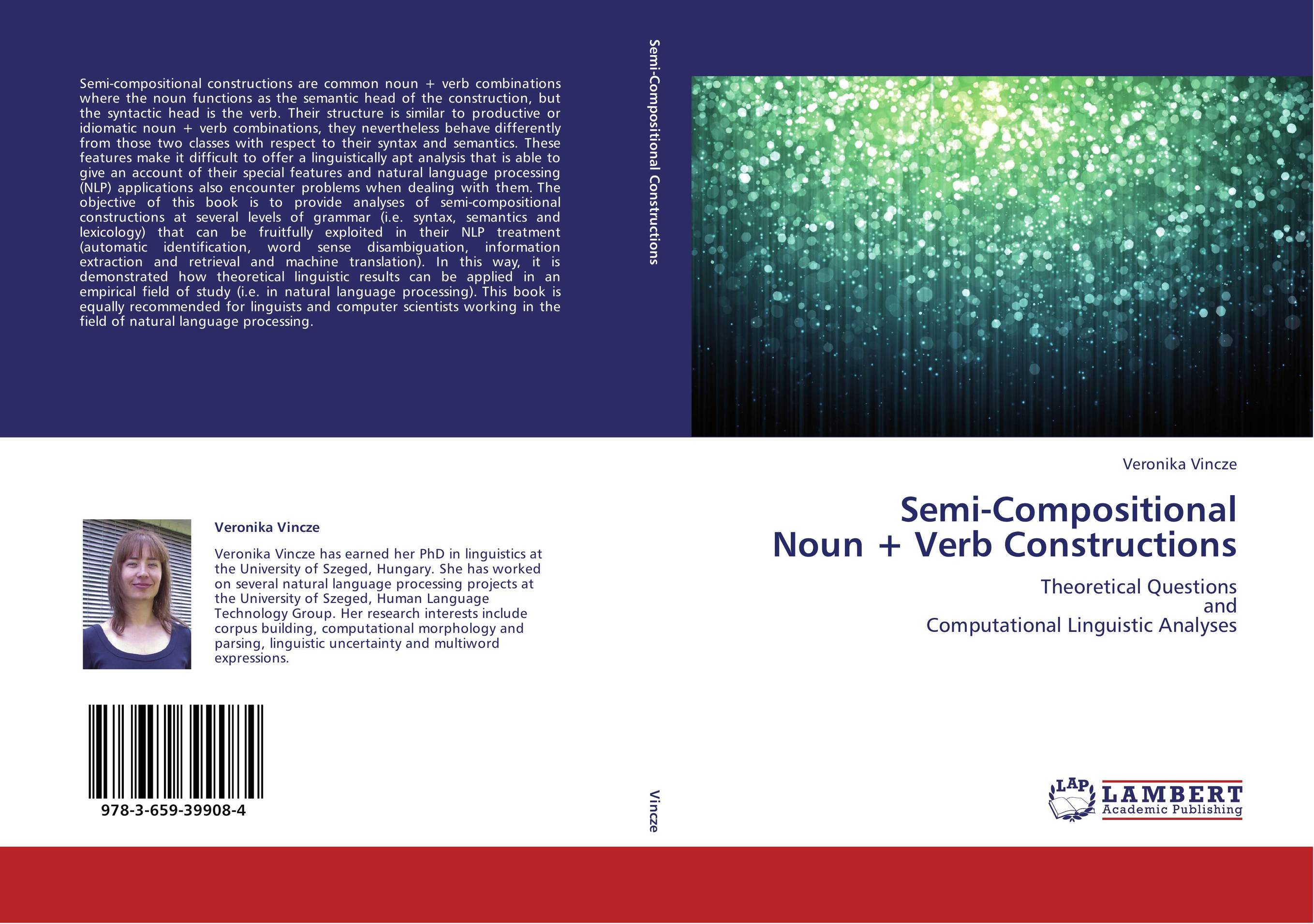| Поиск по каталогу |
|
(строгое соответствие)
|
- Профессиональная
- Научно-популярная
- Художественная
- Публицистика
- Детская
- Искусство
- Хобби, семья, дом
- Спорт
- Путеводители
- Блокноты, тетради, открытки
Semi-Compositional Noun + Verb Constructions. Theoretical Questions and Computational Linguistic Analyses

В наличии
| Местонахождение: Алматы | Состояние экземпляра: новый |

Бумажная
версия
версия
Автор: Veronika Vincze
ISBN: 9783659399084
Год издания: 2013
Формат книги: 60×90/16 (145×215 мм)
Количество страниц: 284
Издательство: LAP LAMBERT Academic Publishing
Цена: 40845 тг
Положить в корзину
| Способы доставки в город Алматы * комплектация (срок до отгрузки) не более 2 рабочих дней |
| Самовывоз из города Алматы (пункты самовывоза партнёра CDEK) |
| Курьерская доставка CDEK из города Москва |
| Доставка Почтой России из города Москва |
Аннотация: Semi-compositional constructions are common noun + verb combinations where the noun functions as the semantic head of the construction, but the syntactic head is the verb. Their structure is similar to productive or idiomatic noun + verb combinations, they nevertheless behave differently from those two classes with respect to their syntax and semantics. These features make it difficult to offer a linguistically apt analysis that is able to give an account of their special features and natural language processing (NLP) applications also encounter problems when dealing with them. The objective of this book is to provide analyses of semi-compositional constructions at several levels of grammar (i.e. syntax, semantics and lexicology) that can be fruitfully exploited in their NLP treatment (automatic identification, word sense disambiguation, information extraction and retrieval and machine translation). In this way, it is demonstrated how theoretical linguistic results can be applied in an empirical field of study (i.e. in natural language processing). This book is equally recommended for linguists and computer scientists working in the field of natural language processing.
Ключевые слова: Linguistics, Computational Linguistics, Natural Language Processing, Theoretical Linguistics, Multiword Expressions, light verb constructions, Hungarian



